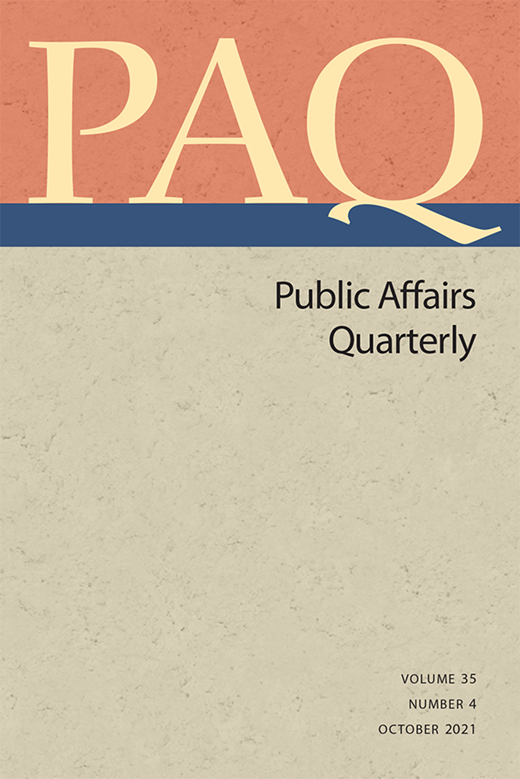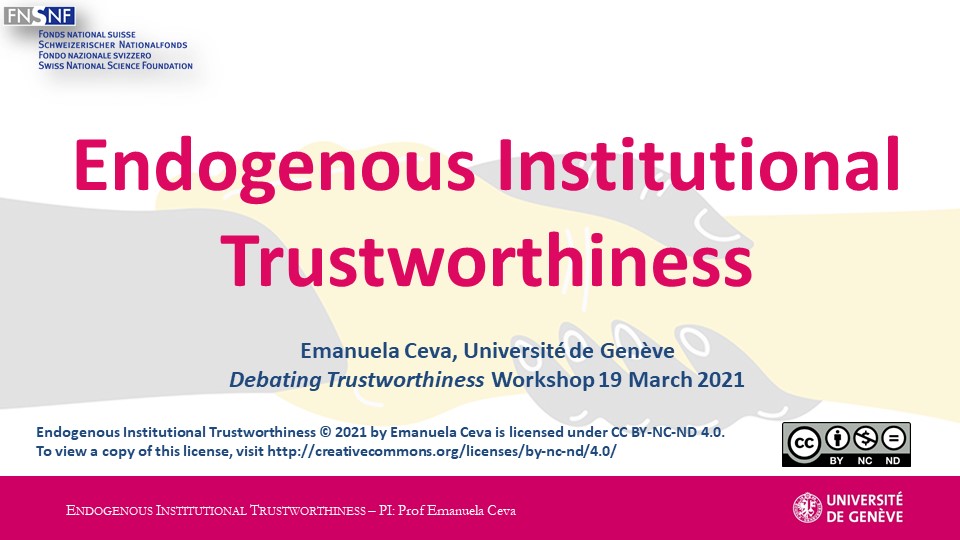Publications
Political philosophers have mainly engaged in normatively assessing public institutions by investigating their founding values, notably social justice and political legitimacy. The normative properties that make those institutions well-functioning have been scantly studied. But even when public institutions are established on just and legitimate grounds, it seems crucial to consider how those institutions should work to live up to their grounding reasons. In this article, we argue that the well-functioning of public institutions is premised on the establishment of an institutional ethics of office accountability. This ethics concerns the mutual duties of officeholders when they exercise their power of office in their institutional capacity.
Emanuela Ceva, Endogenous Institutional Trustworthiness
Attribution - NonCommercial - NoDerivatives 4.0 International
This book makes political corruption an object of public ethics by demonstrating how it is an internal enemy—a Trojan horse—of public institutions. To understand political corruption, Emanuela Ceva and Maria Paola Ferretti argue, we must adopt an internal point of view and look at how officeholders’ interrelated conduct may fail the functioning of their institution because of their unaccountable use of their office’s powers. Even well-designed institutions may be derailed if the officeholders fail to uphold by their conduct a public ethics of office accountability. Political corruption is one such failure, and it is wrong even when its negative consequences are unclear or debatable. To correct this failure, the book calls on officeholders to oppose political corruption from the inside by engaging in practices of mutual answerability.



